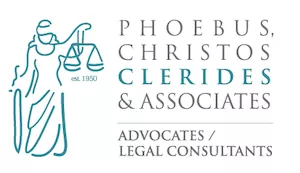Constantinos Clerides’s articles from Phoebus, Christos Clerides & Associates LLC (Clerides Legal) are most popular:
- with readers working within the Property industries
Phoebus, Christos Clerides & Associates LLC (Clerides Legal) are most popular:
- within Transport, Finance and Banking and Law Department Performance topic(s)
What Constitutes an Act of Bankruptcy?
According to the law, an act of bankruptcy occurs under several circumstances, including:
- Fraudulent Transactions: If a debtor engages in fraudulent transfers or gifts of their assets.
- Invalid Transfers: Any transfer or burdening of assets that would be considered a fraudulent preference had a bankruptcy petition been filed.
- Execution Against Goods: If a creditor enforces a court order, and the seized goods are sold or held for 21 days without resolution.
- Incapacity Declaration: When a debtor files a declaration of inability to pay their debts or applies for voluntary bankruptcy.
- Final Court Decision: If a creditor secures a final judgment against the debtor and serves a bankruptcy notice, giving the debtor seven days to comply or contest.
- Unpaid Debts: If a debtor fails to settle debts that could lead to bankruptcy, following a court order requiring them to do so.
- Failed Personal Repayment Plans: When a personal repayment plan is deemed to have failed as per the relevant insolvency laws.
Conditions for a Creditor to File Bankruptcy Proceedings
For a creditor to file a bankruptcy petition against a debtor, the following conditions must be met:
- Debt Threshold: The total amount owed must reach at least €15,000.
- Clear Debt: The debt must be a liquidated sum, payable immediately or at a specified future date.
- Timing of the Act: The bankruptcy act must have occurred within six months prior to the petition.
- Debtor's Residence: The debtor must reside or have conducted business in Cyprus within the past year.
- Creditor Information: The petition must include complete details of the creditor and debtor.
- Filing Fee: A non-refundable fee of €500 must be paid to the Official Receiver.
- Notification Requirements: The creditor must comply with certain notification stipulations to relevant authorities.
Understanding these components is crucial for insolvency practitioners in the field of insolvency law, as it helps navigate the complexities surrounding creditor and debtor rights.
The content of this article is intended to provide a general guide to the subject matter. Specialist advice should be sought about your specific circumstances.


